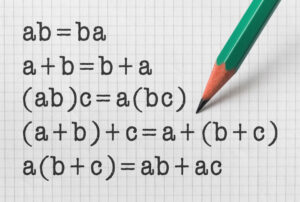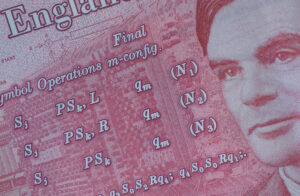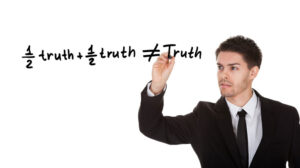Principles of mathematics and Logic a Course for Liberal Arts Students
What is logic? Logic is an try to scientifically study and differentiate between valid and invalid arguments or statements. Arguments and statements are defined every bit containing a premise followed past a conclusion.
Logic is a way of understanding the world, and that has served humankind throughout its existence. In fact, it fifty-fifty pre-dates us. Over millions of years of development logic has been difficult-wired into us, giving us technology ranging from more effective hunting tools to the modern-mean solar day estimator. The liberal arts describes disciplines whose ultimate goal is to brand sense of reality. As the study of logic does exactly this, it's a perfect fit within a well-rounded liberal arts curriculum.
Because logic is instrumental in such a vast range of fields, it'south almost a requirement to study it in a broad liberal arts context.
Mathematics Follows Logic… and then Logic is Mathematic
 It'south no coincidence that when you take an introductory philosophy course you're going to encompass what seems to be algebra in formulaic statements like: if a+b=d, and b+c=d, then a=c.
It'south no coincidence that when you take an introductory philosophy course you're going to encompass what seems to be algebra in formulaic statements like: if a+b=d, and b+c=d, then a=c.
Philosophy looks a lot like math, and that's considering it is. Both can exist defined as the expressions of a premise and a conclusion to ultimately make up one's mind valid and invalid arguments. This is pure Aristotelian logic, and it's thanks to this that the written report of mathematics has been able to progress.
Euclid immediately proceeded Aristotle, founding the field of what nosotros know today as geometry. This was of import for the advancement of mathematics. At this time algebra had non been well established; this would accept happened later during the Islamic Golden Age. Instead, the closest the Greek world could come to algebra were general formulas based on geometry.
Aristotelian logic was widely accustomed equally being able to provide acceptable solutions to mathematical issues all the way up until the xixth century when the High german Gottlob Frege entered the scene. Though they had been around nearly as long as Aristotle himself, Frege was able to mathematically demonstrate the limits of Aristotelian logic by citing one of Euclid'south proofs that clearly and logically showed there were an infinite amount of prime number numbers.
At this point mathematicians recognized the limits of Aristotelian logic and jumped aboard the Frege railroad train, with many recognizing him as the greatest logician since Aristotle. Today Frege is credited with contributing early works on the topics of logic programming and artificial intelligence.
An interdisciplinary approach drawing from numerous civilizations, cultures, and religions that fabricated the developments of mathematics possible, a story that'due south best told by the liberal arts. And besides the impact of mathematics on the futurity, in the form of informatics and AI, has molded key disciplines within the liberal arts.
Information science Owes its Existence to Protocols Based on Logic
 The computer ranks among the top-five inventions of humanity thus far, competing with things like burn down and agriculture. The computer equally nosotros know it today is a natural culmination of the millennia-erstwhile study of logic that was conceptualized in earnest past the British mathematician Alan Turing (1912-1954).
The computer ranks among the top-five inventions of humanity thus far, competing with things like burn down and agriculture. The computer equally nosotros know it today is a natural culmination of the millennia-erstwhile study of logic that was conceptualized in earnest past the British mathematician Alan Turing (1912-1954).
Earning his PhD in mathematics but before the outbreak of World War 2, Turing speedily put his skills to use leading successful efforts to decrypt clandestine communications between Axis Powers and turn the war in favor of the Allies. He took the lessons he learned as a cryptologist, which included early on prototype computers, to found the fields of computer science and artificial intelligence.
During this fourth dimension, he sketched a design for the first stored-program calculator, the predecessor for what would eventually become the first personal computer or PC. The computer science field he helped to found was based entirely on mathematics, not least of which included mathematical logic, whose origins tin be traced all the way dorsum to Aristotelian logic.
Today we rely on computers to practice everything from communicate with our friends to manage our global supply of food and energy. Without logic, none of these mod conveniences would exist possible. Yet computers also heighten new bug about fundamental human activities like socializing (social media), expression (freedom of speech), and the extent to which knowledge should be freely disseminated. These are reasons why it's important to study logic in the context of the liberal arts.
Source: https://liberalartsedu.org/disciplines/logic/
 Logic has applications in essentially every field that seeks to express or empathise the truth or reality, including everything from the arts and sciences to journalism, social movements, and human relationships.
Logic has applications in essentially every field that seeks to express or empathise the truth or reality, including everything from the arts and sciences to journalism, social movements, and human relationships. Typical discussions of logic will revolve around topics like math, the difficult sciences, and computers. Subjects like music are usually left out of the stereotypical conversations nearly logic. But this need not be so.
Typical discussions of logic will revolve around topics like math, the difficult sciences, and computers. Subjects like music are usually left out of the stereotypical conversations nearly logic. But this need not be so.
Posting Komentar untuk "Principles of mathematics and Logic a Course for Liberal Arts Students"